espionage
Ottawa Raises Alarm With Beijing Over Hong Kong Detention of CPC Candidate Joe Tay’s Family
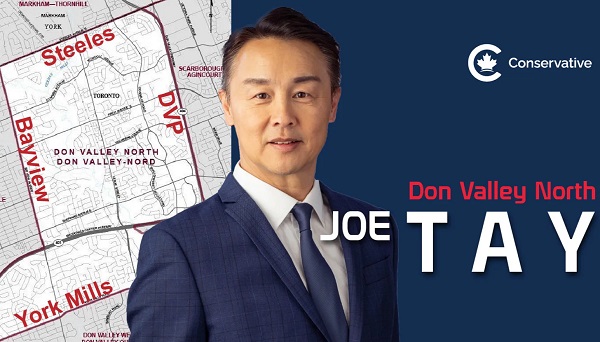
 Sam Cooper
Sam Cooper
Global Affairs Canada stated it “deplores the decision by Hong Kong authorities to punish people for actions that amount to nothing more than freedom of expression.”
Ottawa has “raised its strong concerns directly with both Chinese and Hong Kong authorities” and is monitoring the circumstances surrounding the detention and interrogation of family members of former Conservative election candidate Joe Tay in Hong Kong, Canada’s national intelligence agency confirmed to The Bureau today.
“Global Affairs Canada is aware of Mr. Tay’s family members being called in for questioning in Hong Kong. They are tracking the situation closely, and are in contact with Mr. Tay,” a CSIS spokesperson said.
The federal government issued a rare public rebuke, with Global Affairs Canada stating it “deplores the decision by Hong Kong authorities to punish people for actions that amount to nothing more than freedom of expression.”
“It is unacceptable that Hong Kong authorities have placed a bounty on the head of a Canadian citizen,” the CSIS statement added. “Issuing threats and intimidation against a Canadian citizen is transnational repression and will not be tolerated.”
Questioned by The Bureau on the circumstances surrounding the 2025 federal election, CSIS added that “in particular, when intelligence collected spoke to a threat to the safety of any candidate, CSIS shares this information with all relevant law enforcement partners.”
The confirmation of Hong Kong’s actions against Tay’s family follows The Bureau’s reporting that Hong Kong police detained his cousin and the man’s wife for questioning on Thursday in the Fo Tan district. The incident—deemed credible by Canadian and diplomatic sources—appears to be a targeted act of intimidation tied to Tay’s high-profile candidacy in the 2025 federal election.
Tay, 62, ran as a Conservative candidate in Don Valley North and lost by approximately 5,000 votes. He was heavily targeted by Chinese Communist Party (CCP) influence networks during the election, with PRC-linked WeChat accounts spreading disinformation and narratives portraying Canada as a “refuge for fugitives” if he were elected.
As The Bureau previously revealed, the RCMP advised Tay to suspend in-person campaigning in the final week due to credible threats. The SITE Task Force assessed that Tay was subject to a coordinated foreign interference campaign and broader transnational repression effort.
The rhetoric used to discredit Tay was later echoed by Liberal MP Paul Chiang, who was supported by Prime Minister Mark Carney during the campaign. Chiang’s re-election bid collapsed after The Bureau confirmed that the RCMP had opened a national security review. The RCMP told The Bureau it has opened an investigation into the matter but would not provide further details.
The detentions of Tay’s relatives occurred just 48 hours after Prime Minister Carney’s closed-door meeting in Washington with U.S. President Donald Trump and Vice President J.D. Vance.
That Beijing appears determined to continue persecuting Tay’s family—even after his electoral defeat—signals a broader strategic aim and presents an early and consequential test for Carney, who campaigned on defending Canadian sovereignty while opposing Trump’s tariff regime. The timing—days after Carney’s White House meeting—suggests Beijing may be probing Ottawa’s resolve under new leadership.
In their statement, CSIS and Global Affairs Canada warned that transnational repression and foreign interference remain pervasive threats inside Canada, with CSIS and the RCMP dedicating significant resources to countering these efforts. They confirmed that during the 2025 election, the SITE Task Force monitored candidate safety, advised the government, and took active steps to mitigate threats.
CSIS also confirmed that SITE will publish a public post-election report summarizing the threat landscape, interference patterns, and actions taken during the writ period.
The Bureau has previously documented Beijing’s use of family-based intimidation as part of its global enforcement strategy. On April 10, 2025, The Bureau confirmed that the parents of Hong Kong activist Frances Hui were detained by Hong Kong national security police after Hui testified before Canada’s Parliament. Hui, now based in the United States, was previously followed and threatened by an alleged PRC agent who was later indicted—but not convicted—by U.S. authorities.
Tay’s case fits that pattern. The Bureau has learned that a report reviewed by Toronto police during the campaign included a stalking threat involving Tay’s team.
The formal charges against Tay were issued by Hong Kong police in December 2024. According to official documents reviewed by The Bureau, Tay—born 12 December 1962—was charged with incitement to secession and collusion with a foreign country or with external elements to endanger national security. Authorities allege that between July 2020 and June 2024, Tay operated a platform called HongKonger Station, through which he published “numerous videos inciting secession” and “repeatedly urged foreign countries to impose sanctions” on officials in Beijing and Hong Kong.
The SITE Task Force confirmed these charges were amplified by PRC intelligence-linked media during the Canadian election in an effort to delegitimize Tay and portray his candidacy as a threat to the PRC.
Editor’s Note: This story was updated to note the defendant in the Frances Hui case was not convicted.
The Bureau is a reader-supported publication.
To receive new posts and support my work, consider becoming a free or paid subscriber.
Invite your friends and earn rewards
Business
Dominic Barton’s Shadow Over $1-Billion PRC Ferry Deal: An Investigative Op-Ed
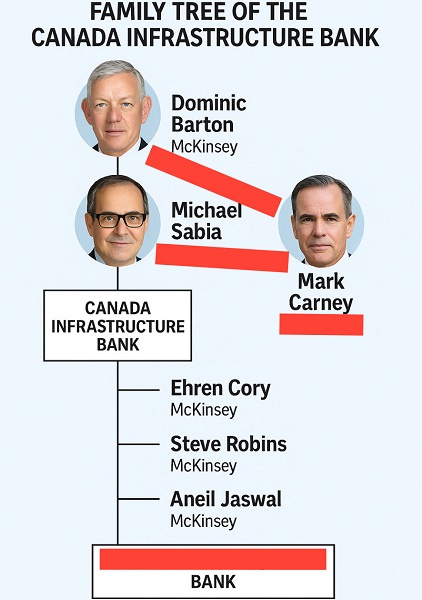
Ottawa’s story never added up. When the Canada Infrastructure Bank pushed through a $1-billion loan to BC Ferries for vessels built at a Chinese state-owned shipyard, federal ministers claimed they were “dismayed” and blindsided. Chrystia Freeland even wrote a letter to the BC government citing national security concerns. In hindsight, she and her staff were engaged in political theatre, performing shock to deflect responsibility onto Premier David Eby.
Documents later showed Freeland’s own ministry of transport had been briefed six weeks before the public rollout. In one internal exchange, her staff admitted officials had received “a confidential heads-up” well in advance. Then came testimony from Housing and Infrastructure Minister Gregor Robertson — also responsible for the Infrastructure Bank — acknowledging the loan was already “inked” in March, before he supposedly raised concerns, a claim as hollow as Freeland’s staged outrage.
The $1-billion Canadian Infrastructure Bank loan to BC Ferries flows directly to China Merchants Industry Weihai — a dual-use shipyard central to Beijing’s military-civil fusion strategy. Critics have long warned that such contracts risk entangling Canadian taxpayers with Chinese state enterprises linked to the People’s Liberation Army.
Those concerns take on new urgency with fresh revelations from Australia. ABC News reported yesterday on a classified U.S. Defense Intelligence Agency assessment showing that China’s commercial ferry fleet is being militarized for amphibious operations against Taiwan. These are not neutral passenger vessels but dual-use platforms modified to carry tanks and PLA troops. The timing of the four-ship build for BC Ferries, the nature of the shipyard, and the class of vessel all suggest that Canada could be indirectly bolstering Beijing’s invasion platform — and, at the very least, injecting Canadian funds into the industrial ecosystem driving the PLA’s buildup.
The nature of CIB’s involvement, and Ottawa’s actions that fit the pattern of an emerging cover-up, point to a deeper story that has been bubbling in the capital for nearly a decade: former McKinsey global director and Canadian ambassador to China Dominic Barton, his deep ties to Chinese state-owned and dual-use enterprises, and his founding role in the CIB.
Defensive “talking points” prepared for Gregor Robertson’s August 1, 2025 testimony provide a revealing glimpse. The records, obtained through freedom of information by The Bureau, are mostly boilerplate answers. But two pages on the CIB’s structure show clearly what outside reporting has long established: the Bank carries Barton’s DNA, and the imprint of his McKinsey network continues to this day. That raises a plausible theory — that Canada’s pro-Beijing trade lobby, a circle of business leaders revolving around Barton, Sabia, McKinsey, and now Prime Minister Mark Carney, looks like the hidden hand guiding this supposedly arm’s-length deal.
The records that anchor this OpEd show the Infrastructure Bank’s story can be traced like a family tree. At the top is Dominic Barton. In 2016, while serving as McKinsey’s global managing director, he chaired the federal Advisory Council on Economic Growth. That council produced the blueprint for the Canada Infrastructure Bank — and McKinsey itself was paid as a consultant during its creation. Sitting beside Barton on the council was Michael Sabia, who would later become chair of the Bank in 2020 and today serves as chief of staff to Prime Minister Mark Carney.
As the Bank moved from paper to practice, Sabia’s role became pivotal. When he took over as chair, he pulled Barton back into the fold. In June 2020, Barton joined a “strategic refresh” meeting of the CIB. Emails later revealed that McKinsey staff had arranged the session so that “Dom” could “speak freely,” even though he was then serving as Canada’s ambassador to China.
The pattern deepened as new leadership arrived. In November 2020, Ehren Cory was appointed CEO. Cory, too, had worked at McKinsey. Around him, other alumni filled senior posts: Steve Robins, now head of strategy; Aneil Jaswal, director of strategic sectors; even Cory’s executive assistant came directly from McKinsey, according to notes prepared for Gregor Robertson’s August testimony and obtained by The Bureau.
Running alongside this McKinsey chain is a side branch that loops back into the heart of Ottawa. Sabia, Barton’s colleague from the Advisory Council, now serves as Mark Carney’s right hand in the Prime Minister’s Office.
Seen this way, the CIB is not just a Crown corporation with a neutral mandate. It is an institution shaped from the start by Barton’s hand, nurtured by Sabia, and still run day to day by McKinsey-trained managers. The government’s defensive claim — that McKinsey’s influence ended in 2017, as set out in notes for Robertson’s testimony — is impossible to believe. It is as false as Chrystia Freeland’s June 2025 letter to David Eby’s government.
The continuity of influence is not just structural — it’s personal. On June 23, 2020, while serving as ambassador to China, Barton joined a CIB “strategic refresh” meeting. He says it was at Sabia’s invitation. But emails tabled in committee show McKinsey staff helped arrange the call and even discussed limiting participants so “Dom” could “speak freely.” Pressed in Parliament during May 2023 testimony, Barton initially failed to disclose the meeting. Only after documents surfaced did he confirm it.
That evasiveness set off a bruising clash. Conservative MP Leslyn Lewis told him flatly: “We have testimony that you gave before, and that was false indeed.” She added: “Mr. Sabia, the former chair of the CIB, testified here on Tuesday that you participated in a McKinsey seminar, led by McKinsey, while you were ambassador — and you have now confirmed this information today.”
Garnett Genuis drove the point home: “Mr. Barton is clearly lying to this committee. We have the emails in black and white. It seems McKinsey was able to infiltrate the government and shape decision making. Your presence and close relationship with the government allowed that to happen.”
Three years earlier, Barton had faced an even higher-profile grilling before the Canada–China Committee — testimony with direct geographical and geopolitical relevance to the CIB’s mysterious $1-billion loan to CMC Weihai.
Back in 2020, Genuis pressed him on McKinsey’s advisory work for Chinese state-owned enterprises, including the China Communications Construction Company — sanctioned by the World Bank for corruption and implicated in Beijing’s militarized islands in the South China Sea. Barton ducked, dissembled, and insisted he was unaware.
“At the time you were in charge of McKinsey, from 2009, it’s my understanding that you advised almost two dozen Chinese state-owned companies. According to The New York Times, one of those companies was the China Communications Construction Company,” Genuis prodded. “When you signed the China Communications Construction Company as a client in 2015, they were still under World Bank sanctions because of the corruption and bid-rigging they engaged in in the Philippines.”
Next, the Conservative MP asked directly: “McKinsey was advising a company that was carrying out the Chinese government’s policy of building militarized islands in the South China Sea. Was it your position that those islands are a violation of international law?”
“What I would say is that I am not familiar at all with our being involved in designing the islands in the South China Sea,” Barton answered. “If you want to talk to someone at McKinsey to find out more information, I’m sure we’d be happy to get someone to talk to you about it.”
McKinsey did not return with information on China’s military action in the South China Sea — the very same theater where Beijing now threatens Taiwan with its civilian ferry buildup plan.
Genuis also asked: “Would you be prepared to submit to this committee a list of all of the Chinese state-owned companies that you did work for at McKinsey?”
“McKinsey’s pretty careful about client confidentialities,” Barton answered. “I’d be happy if there were some mechanism so that it isn’t in the public domain but that some people could look at it. I’m open to that.”
That list was never provided, based on The Bureau’s follow-up in Ottawa. Given the questions surrounding the CIB’s loan to fund CMC Weihai ferries, this lack of transparency takes on a more ominous colour.
The historical record of testimony, going back to the Genuis–Barton stand-off, now casts a long shadow. There is a clear through line to the questioning still to come for Carney’s responsible ministers in the BC Ferries deal — Chrystia Freeland and Gregor Robertson. After revelations that Freeland and her staff staged their supposed shock at the deal with a Chinese military-linked shipbuilder, Freeland has been recalled.
Savvy questioners will likely look beyond her — and above her — in their probing. The CIB, seeded by Barton, staffed by McKinsey alumni, and previously steered by Mark Carney’s chief of staff Michael Sabia, has financed a project that objectively strengthens Beijing’s naval-industrial complex. Who really profits, in conjunction with Beijing? Certainly not Canadian workers, shipbuilders, or citizens, who are left carrying the burden of their government’s deals with China.
This is not just about procurement missteps or potential conflicts of interest. It is the culmination of a decade of weak, negligent thinking on China’s military aggression — stretching from the South China Sea to Canada’s Pacific, Atlantic, and Arctic coasts. Until Canadians confront Barton’s enduring imprint on the CIB, they will continue to discover — too late — that their money is underwriting Beijing’s rise.
The Bureau is a reader-supported publication.
To receive new posts and support my work, consider becoming a free or paid subscriber.
espionage
Canada Under Siege: Sparking a National Dialogue on Security and Corruption

By Garry Clement, and Dean Baxendale
Authors, Parliamentarians and Security Experts Rally for Ottawa Conference.
Canada is under siege — and most Canadians don’t even know it. Foreign interference, organized crime, opaque money flows, and state-backed influence operations are not distant threats. They are here, in our communities, our financial system, and even our political processes. They are undermining our sovereignty, corroding trust in our institutions, and shaping policies in ways that put the interests of hostile states and criminal networks ahead of those of Canadians.
This is no longer speculation. It is documented. It is systemic. And it is happening in plain sight.
To bring these dangers into the open, we are launching a national conversation through a press conference and public platform hosted by the Macdonald-Laurier Institute. On October 8 in Ottawa, we will introduce these threats to the national agenda. The event coincides with the release of our new book, Canada Under Siege: How Prince Edward Island Became a Forward Operating Base for the PRC, co-authored by Michel Juneau-Katsuya, Dean Baxendale, and myself. The book traces how Canada’s smallest province became a beachhead for Chinese state-linked influence operations.
Through real estate acquisitions, immigration and investor programs, and targeted political donations, foreign state actors — particularly the People’s Republic of China — have leveraged PEI as a soft entry point to the Canadian political and economic system. The island has become, in effect, a forward operating base for Chinese threat actors — and Canada looked away as it happened.
For too long, Canada has been complacent — willfully blind to malign influence operations, hostile state actors, and the domestic enablers who profit from weak laws and lax enforcement. Our financial system remains a magnet for dirty money, with beneficial ownership hidden behind shell companies. Our sanctions regime is inconsistently enforced, allowing sanctioned individuals and entities to move assets into Canada with impunity. Our immigration system has been exploited by corrupt actors who see Canada not as a home, but as a safe haven for assets and influence.
Ordinary Canadians are paying the price — housing unaffordability as foreign funds inflate markets; national security risks as critical infrastructure and technology sectors are infiltrated or acquired; and erosion of trust as Canadians lose faith in institutions that fail to protect them.
This national conversation will be evidence-based and solutions-focused. At the event we will assemble a distinguished group of experts — including former Prince Edward Island MP Wayne Easter; Senator Leo Housakos, Leader of the Opposition in the Senate, who will address Canada’s lack of action on national-security threats; Kevin Vuong, former Member of Parliament; LGen (Ret’d) Christopher Coates; Dean Baxendale, President of Optimum Publishing and democracy advocate; and Garry Clement, former RCMP Superintendent — to map the threat landscape and chart a practical, actionable path forward to safeguard Canada’s sovereignty, democracy and economy.
Canada must stop being a soft target. We must strengthen transparency laws to expose foreign funding, lobbying efforts, and beneficial ownership of Canadian assets; enforce sanctions and anti-money-laundering measures so dirty money cannot quietly flow into our economy; equip our intelligence and law enforcement agencies with the legal tools, resources, and political backing they need to disrupt and prosecute interference operations; and educate and engage Canadians so the public understands what is happening — and demands accountability from government and institutions.
The launch of Canada Under Siege and the Macdonald-Laurier Institute’s platform represent a turning point. This is our chance to move beyond whispers, beyond closed-door briefings, beyond the false comfort of “this could never happen here.” The threats to Canada’s democracy are real. They are here. And they are growing.
We believe Canadians deserve the truth — and a plan to confront it. This initiative will give them both. Canada has faced existential threats before, and we have always prevailed. But only when we recognized the danger, mobilized our citizens, and acted decisively.
The time to act is now.
The Bureau is a reader-supported publication.
To receive new posts and support my work, consider becoming a free or paid subscriber.
-

 Business12 hours ago
Business12 hours agoOver $2B California Solar Plant Built To Last, Now Closing Over Inefficiency
-

 Autism2 days ago
Autism2 days agoAutism – what we know
-
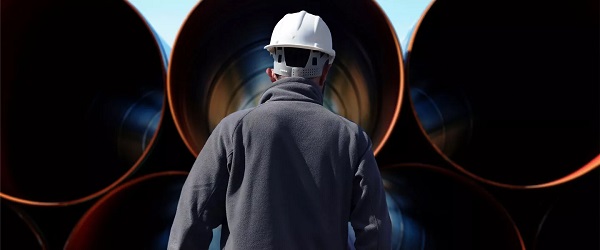
 Alberta2 days ago
Alberta2 days agoFederal policies continue to block oil pipelines
-

 espionage1 day ago
espionage1 day agoCanada Under Siege: Sparking a National Dialogue on Security and Corruption
-

 Business11 hours ago
Business11 hours agoWEF has a plan to overhaul the global financial system by monetizing nature
-

 Business13 hours ago
Business13 hours agoThe Leaked Conversation at the heart of the federal Gun Buyback Boondoggle
-
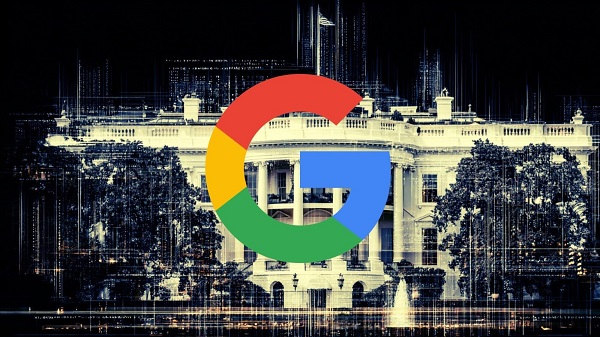
 Business1 day ago
Business1 day agoGoogle Admits Biden White House Pressured Content Removal, Promises to Restore Banned YouTube Accounts
-
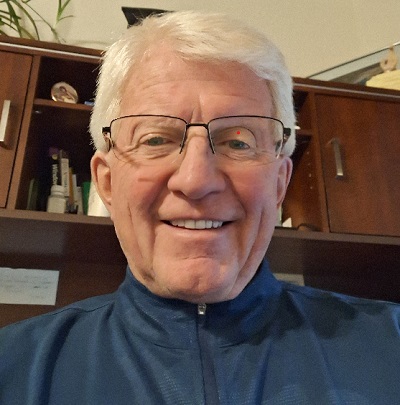
 Opinion12 hours ago
Opinion12 hours agoThe City of Red Deer’s financial mess – KPMG report outlines failure of council to control spending









